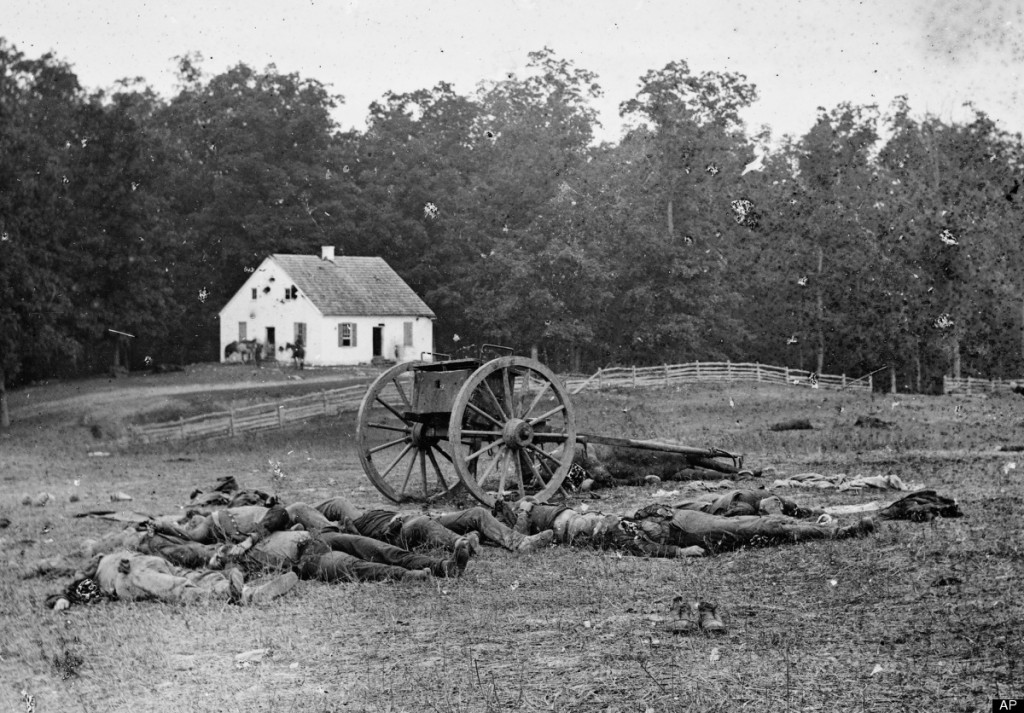All AP Art History Resources
Example Questions
Example Question #271 : Ap Art History
Which of the following grouping of artists were NOT part of the same art movement?
Jasper Johns, Robert Rauschenberg, Roy Lichtenstein
Jackson Pollock, Wassily Kandinsky, Mark Rothko
Paul Cézanne, Édouard Manet, Claude Monet
Vincent van Gogh, Henri Matisse, Joan Miro
Pablo Picasso, Georges Braque, Fernand Léger
Vincent van Gogh, Henri Matisse, Joan Miro
Vincent van Gogh, Henri Matisse, and Joan Miró were all connected as artists through their use of color and experimentation with forms. Nonetheless, each artist developed his own unique style that largely stood apart from other artists. Van Gogh's postimpressionistic style built on impressionism, while Matisse and Miro's deconstruction of form and representation exploded many of impressionism's notions of art.
Example Question #81 : Nineteenth Century 2 D Art
Which American artist is well-known for his paintings and sculptures of the American West?
James Abbott McNeill Whistler
Frederic Remington
Ansel Adams
John Singer Sargent
Thomas Moran
Frederic Remington
Frederic Remington was a native New Yorker who began his career as a painter and illustrator for magazines after the Civil War. After going on assignment to illustrate a magazine article on the Apache leader Geronimo in 1886, Remington began to paint and sculpt images of the American West exclusively. Remington's style was naturalistic and empathetic to his subjects, and also had a natural ability to capture accurate movement. Remington's images of the Old West are some of the most famous images of cowboys and Native Americans.
Example Question #82 : Nineteenth Century 2 D Art
Gustave Courbet is well known for developing and working in what style?
Romanticism
History painting
Impressionism
Expressionism
Realism
Realism
Gustave Courbet (1819-1877) was a French painter who reacted to the previous generation's bold romanticism and his contemporary critics' love of history painting by developing what he termed "realism." Courbet wished to use his painting to comment on social issues and values, which he felt were valuable topics on which a painter might focus. Courbet sought out landscapes, portraits, and still lifes that depicted the everyday in rough, honest brushstrokes.
Example Question #83 : Nineteenth Century 2 D Art
Who of the following artists was known for his "orientalist" paintings?
Georges Seurat
Edgar Degas
Eugene Delacroix
Paul Gauguin
Claude Monet
Eugene Delacroix
Delacroix was a famous nineteenth-century painter known for his orientalist paintings, which illustrated Middle Eastern culture and lifestyle to a Western audience.
Example Question #31 : Identifying Artists, Works, Or Schools Of Nineteenth Century 2 D Art

The above photography was made by which notable American artist?
Matthew Brady
Willard Van Dyke
Ansel Adams
Alfred Stieglitz
William Page
Matthew Brady
The work of Matthew Brady during the American Civil War pioneered many notable aspects of photography, which was still a new medium and had mostly been devoted to portraiture. Brady's willingness to document the Civil War by going to battlefields reframed the possibilities for photography, notably allowing for the development of photojournalism.
Example Question #32 : Identifying Artists, Works, Or Schools Of Nineteenth Century 2 D Art

Pictured above is a work entitled Impression, Sunrise.
The painting above comes from which of the following artistic traditions?
Salon-Style
Impressionism
Post-Impressionism
Neoclassicism
Impressionism
The work offers an impression of a sunrise, hence the name, and is of the Impressionist style.
Example Question #33 : Identifying Artists, Works, Or Schools Of Nineteenth Century 2 D Art

Pictured above is a work entitled Impression, Sunrise.
The artist of this work is most famous for his later depiction of __________.
French cityscapes
high-society socialites
women in the nude
water lilies
water lilies
This work was made by Claude Monet, who is famous for a series of paintings depicting the water lilies in his garden.
Example Question #34 : Identifying Artists, Works, Or Schools Of Nineteenth Century 2 D Art

Pictured above is a work entitled Impression, Sunrise.
Most specifically, this style of art was born as a response to, and a break from, __________.
the Salon de Paris
the Hudson River School
Italian Renaissance work
Colonial Neoclassicism
the Salon de Paris
Impressionism grew out of the desire of nineteenth-century Parisian artists to move away from the outdated works of the Salon de Paris. Their work moved against tradition and was rejected by the Salon, causing a movement to form in response.
Example Question #35 : Identifying Artists, Works, Or Schools Of Nineteenth Century 2 D Art
Which of the following works best captures the pointillist style?
All of the answers are correct
None of the answers are correct
Hieronymus Bosch, The Garden of Earthly Delights (c. 1500)
Fernand Leger, The City (La Ville) (1919)
Georges Seurat, A Sunday Afternoon on the Island of La Grande Jatte (1886)
Georges Seurat, A Sunday Afternoon on the Island of La Grande Jatte (1886)
Seurat's ...La Grande Jatte is the most iconic work in the pointillist style. Leger's works had more in common with cubism than pointillism and Bosch's works were created during the Renaissance.
Example Question #36 : Identifying Artists, Works, Or Schools Of Nineteenth Century 2 D Art

In what non-European country did the artist produce this work?
Fiji
Thailand
The Cook Islands
Tahiti
Indonesia
Tahiti
Paul Gauguin produced this work in Tahiti, where he lived for a good portion of his life. Tahiti is part of French Polynesia, making it a desirable destination for a French man in the late 1800s. In order to solve this question you needed to know that the piece was by Gauguin, the association of Gauguin with Tahiti is one of the most famous in 19th-century art.
All AP Art History Resources




